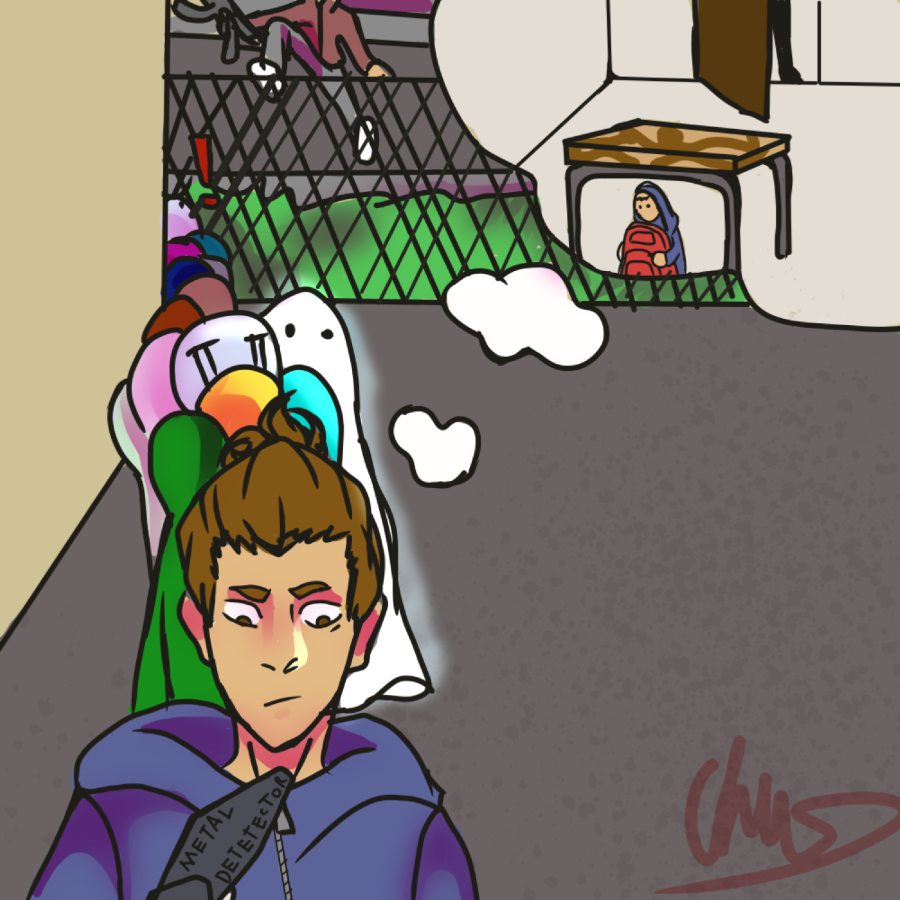Random Use of Metal Detectors Could Increase Fear Within The Students
The random use of metal detectors remind students’ of a possible shooter while it gives the opportunity for others to hide their weapons.
March 19, 2022
ID badges on, gates and doors locked, security guards patrolling the halls, cameras monitoring every move. Is it school or jail? Well, with the addition of metal detectors recently approved by the Broward County School Board (BCSB), for students, it’s starting to feel more like jail.
It’s understandable why school board members felt the need to address the issue. This past December, South Plantation High School was in lockdown mode for hours after a shooting threat on campus. That same day, police arrested a student with a loaded gun at Miramar High School. With two incidents, coupled with a steady increase of confiscated weapons at Broward County Public Schools and the specter of the Marjory Stoneman Douglas shooting. Their answer was to mandate hand-held random sweeping with metal detectors to combat the disturbing rise in schools.
But, as a student, preparing myself to be wanded over every inch of my body in school, I find it unsettling. It’ll remind me daily how unsafe I am. Especially, in an environment where I should be able to trust my peers and administrators and learn.
According to the study “School Disorder, Victimization, and General v. Place-Specific Student Avoidance” by professor of Sociology and Criminology at Pennsylvania State University. Pamela Wilcox and her co-writer Ryan Randa, state that students that are alarmed and frightened at school start to dislike it and avoid more school involvement. In some cases, the report noted that attendance worsens on the days metal detectors are used. School is an institution for educating students; if evidence clearly shows the effects of metal detectors on students, why implement them? It disrupts the point of what school is really for.
Another 2017 study, “Student Surveillance, Racial Inequalities, and Implicit Racial Bias,” by professor Jason P. Nance at University of Florida Levin College of Law, further support that there is no need for metal detectors.
“There comes a point where monitoring students no longer enhances the learning environment, but impedes it, especially when school officials rely on a combination of the strict security measures listed above [metal detectors, random searches, locking and monitoring gates, and surveillance cameras], which can create an intense surveillance environment.”
Nance also noted that tighter security, like metal detectors and on-campus police, not only puts all students on edge, but it especially affects minority students since they tend to be profiled more than white students for search and wanding procedures. Although the school board claims the wandings will be random, history proves otherwise.
“Another racial inequality that has received much less attention, but still deserves our consideration, is the disparate use of strict security measures in schools serving primarily students of color,” said Nance.
According to a 2019 study “Are Metal Detectors Effective at Making Schools Safer?” by Jaclyn Schildkraut, associate professor of criminal justice at SUNY, and Kathryn Grogan, a research associate, “There is no evidence that shows metal detectors help schools prevent school shootings.”
To students, metal detectors are a constant reminder of the possibility of a shooting. Increased security measures create an incredible amount of anxiety. On top of that, there is a good chance they’ll probably miss most of the weapons as students will be able to text and warn each other that a weapon sweep is happening.
This “solution” is only a band-aid to what really needs to be done, gun control.
Restrictive gun control has proven itself over and over again, it is the best way to ensure the safety of students. A 2021 study by Charles Branas and Paul Reeping of the Columbia Mailman School of Public Health, found that U.S states with more restrictive gun laws show a decrease in mass shootings, compared to a state with less restrictive gun laws.
The counter argument to tighter security are mental health services, an admirable but expensive solution. The Federal Bureau of Labor Statistics says the average salary for a school psychologist is $77,430. Compare that to the cost of hand-held metal detectors, each one is between $100 to $150, and it’s no wonder the school board took the cheaper route. Even if we did put more money towards mental health services, surely providing those services would come at a cost to educational services.
If we don’t take any beneficial steps to gun control, there will be another fatal school shooting, and “safety measures” and “security” will just get tighter, making us as students like prisoners.
How can I feel safe in my daily school environment when my educators view me as a threat?




